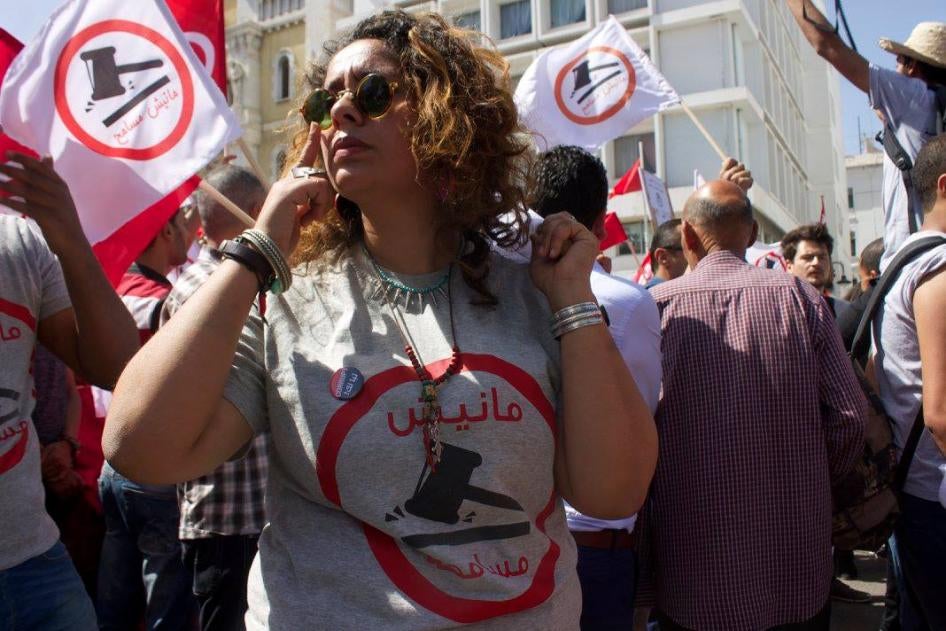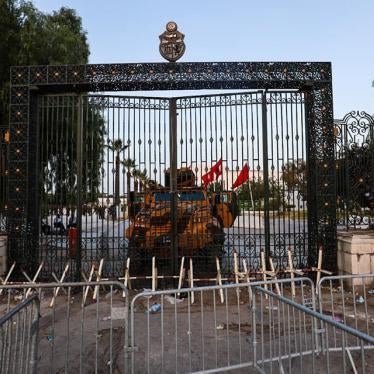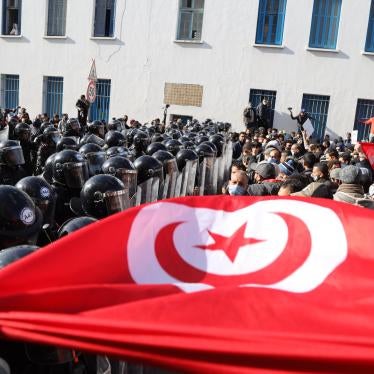“I’m not sure whether to laugh, get angry, or feel utter frustration,” Myriam Bribri, a Tunisian activist told Human Rights Watch in response to the fine and four-month prison sentence a court in the city of Sfax gave her on December 21, 2021. Bribri had posted a video to her Facebook page in October 2020 showing police roughly arresting a man, along with the comment, “You’re all big assholes.”
Police officers in Sfax interrogated Bribri about the video and her comment on October 8, 2020. The same day, a prosecutor accused Bribri of “knowingly harming or disturbing others via public telecommunications networks,” under article 86 of Tunisia’s 2001 Code of Telecommunications, the charge for which she was convicted last month. She remains provisionally free pending her appeal.
Bribri has participated in a number of protests over the years, in particular those organized by groups representing people who were wounded or killed in the 2011 revolution, and which continue to demand reparations and justice.
Bribri was also active in the “Manich Msamah” (“I will not Forgive”) movement that unsuccessfully opposed the adoption of a 2017 law providing, in the name of reconciliation, amnesty for state employees who served under ousted President Zine el-Abidine Ben Ali and who were not involved in grave human rights abuses.
It's not clear whether authorities prosecuted Bribri in reprisal for her activism, while leaving alone many others who posted comments like hers in reaction to the same video. But Bribri joins scores of other Tunisians, including bloggers, activists, and social media commentators who have been prosecuted for their peaceful criticism of state officials and institutions, even if that criticism is no more than a sarcastic or profane exclamation.
Repressive laws that date back to the prerevolutionary period are alive and well in Tunisia. But so are activists like Myriam Bribri, who vows that those laws and the authorities who impose them will not silence her.










